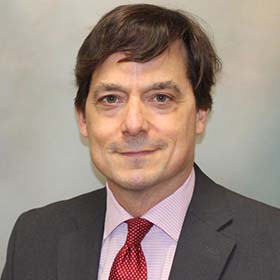Sleep Medicine Services & Treatment in Menomonie
Do you have trouble sleeping? Are you tired all day, even after what you think is a good night's sleep? Has anyone ever told you that you snore or stop breathing while you sleep?
If you answered "yes" to any of these questions, you're not alone. More than 50 million Americans are poor sleepers. But sleep disorders can be diagnosed and managed. We can help you make a positive difference in your sleep. A sleep study is used to diagnose if you may have a sleep disorder, such as insomnia, narcolepsy or sleep apnea.
Find out more about our sleep medicine services:
Take a sleep quiz
Read these statements, and keep track of all the statements you can say "yes" to:
- I feel sleepy during the day, even when I get a good night's sleep.
- I get very irritable when I can't sleep.
- I often wake up at night and have trouble falling back to sleep.
- It usually takes me a long time to fall asleep.
- I often wake up quite early and can't fall back to sleep.
- I usually feel achy and stiff when I wake up in the morning.
- I often seem to wake up because of dreams.
- I sometimes wake up gasping for breath.
- My bed partner says my snoring keeps them from sleeping.
- I've fallen asleep driving.
If you identified more than two "yes" statements, you may want to discuss your sleep problem with your healthcare professional. Call to schedule a consultation with a sleep specialist.
Sleep disorders
We provide comprehensive testing for sleep issues, including:
- Idiopathic daytime hypersomnia
- Insomnia
- Narcolepsy
- Nocturnal seizure disorder
- Periodic limb movement disorder
- REM sleep behavior disorder
- Restless legs syndrome, or Willis-Ekbom disease
- Sleep apnea
- Sleepwalking
- Snoring
What to expect with a sleep study

Your provider may make an evaluation based on your sleep signs and symptoms or may refer you to the sleep center in Menomonie, which is accredited by the American Academy of Sleep Medicine. There, a sleep specialist will further evaluate your symptoms during a sleep study or sleep evaluation, called polysomnography, which involves overnight monitoring of your breathing and other body functions during sleep. When you arrive in the evening, you will be given a private, hotel-like room with a comfortable bed. You may bring items you use for your bedtime routine and sleep in your own nightclothes.
The room has a video camera, so the polysomnography technologists monitoring you throughout the night can see what's happening in the room when it's dark. There's also an audio system so they can talk to you and hear you from their monitoring area outside the room. If you need assistance, you can talk to them through the monitoring equipment. They can come into the room to detach the wires if you need to get up during the night.
While you sleep, a technologist monitors your:
- Blood oxygen level
- Body position
- Brain waves
- Breathing pattern
- Eye movements
- Heart rate
- Limb movement
- Snoring and other noise you may make as you sleep
All of these measurements are recorded on a continuous graph.
Although you probably won't fall asleep as easily or sleep as well at the sleep center as you do at home, this usually doesn't affect the test results. A full night's sleep isn't required to obtain accurate polysomnography results.
In the morning, the sensors are removed. You'll be scheduled for a follow-up appointment with the healthcare provider who recommended the test. You can return to your usual activities.
Sleep apnea
Sleep apnea is a potentially serious sleep disorder in which breathing repeatedly stops and starts. You may have sleep apnea if you snore loudly and feel tired even after a full night's sleep.
The main types of sleep apnea are:
- Obstructive sleep apnea
More common form that occurs when throat muscles relax - Central sleep apnea
Occurs when your brain doesn't send proper signals to the muscles that control breathing - Complex sleep apnea syndrome
Also known as treatment-emergent central sleep apnea, which occurs when you have obstructive sleep apnea and central sleep apnea
If you think you might have any form of sleep apnea, call us to make an appointment. Treatment can ease your symptoms, and may help prevent heart problems and other complications.
Watch this video to learn more about sleep apnea:
Good sleep habits
These tips can help you create good sleep habits and alleviate sleep disorders:
- Wake up about the same time every day.
- Go to bed only when you're sleepy.
- Establish relaxing pre-sleep rituals, such as a warm bath, light bedtime snack or 10 minutes of reading.
- Exercise regularly. Confine vigorous exercise to at least six hours before bedtime and mild exercise to at least four hours before bedtime.
- Keep a regular schedule. Regular times for meals, medications, chores and other activities help keep your inner clock running smoothly.
- Avoid caffeine within six hours of bedtime.
- Don't drink alcohol, especially if you're sleepy. Even a small dose of alcohol can have a potent effect when combined with tiredness.
- Avoid smoking close to bedtime.
- Avoid daytime napping. If daytime sleepiness becomes overwhelming, limit yourself to a single nap of less than one hour no later than 3 p.m.
- Avoid taking sleeping pills or use them conservatively.
- Minimize light, noise and extremes in temperature in your bedroom.
Locations
Hospital and Clinic
2321 Stout Road, Menomonie, WI 54751- Appointments:
- 715-233-7777
- Hours:
- Mon-Thu:8:00 AM - 6:00 PM
- Fri:8:00 AM - 5:00 PM
